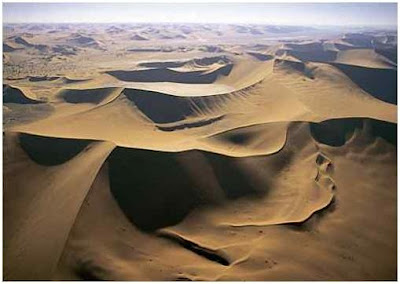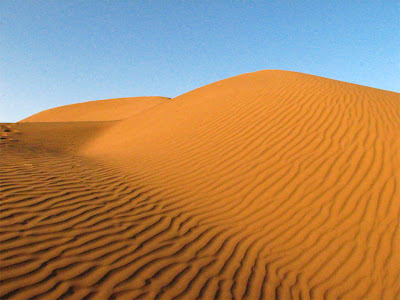
A desert is a landscape or region that receives an extremely low amount of precipitation, less than enough to support growth of most plants. Most deserts have an average annual precipitation of less than 400 millimetres (16 in).[1] A common definition distinguishes between true deserts, which receive less than 250 millimetres (10 in) of average annual precipitation, and semideserts or steppes, which receive between 250 millimetres (10 in) and 400 to 500 millimetres (16 to 20 in).[1][2] Deserts can also be described as areas where more water is lost by evapotranspiration than falls as precipitation.[1] In the Köppen climate classification system, deserts are classed as BWh (hot desert) or BWk (temperate desert). In the Thornthwaite climate classification system, deserts would be classified as arid megathermal climates




